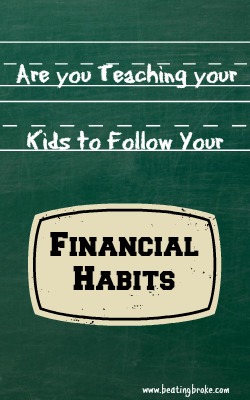
Relationships are often built on love and shared values, but financial compatibility plays a critical role in long-term stability. Staying in a relationship with someone whose habits undermine financial growth can lead to a constant cycle of stress and stagnation. The following are ten reasons why staying with “her” (or any partner with these tendencies) might keep you from achieving financial security.
1. She Spends Beyond Her Means
A partner who constantly lives beyond her financial capacity may drain both your budget and future savings. Whether it’s unnecessary shopping sprees or luxury vacations, overspending quickly depletes resources. This behavior creates an unsustainable lifestyle and leaves little room for financial growth or stability.
2. She Avoids Budgeting
Financial planning requires discipline and cooperation. If she refuses to stick to a budget or ignores the importance of tracking expenses, it can lead to long-term financial chaos. Without a shared commitment to budgeting, it’s difficult to make progress toward shared goals like homeownership or retirement savings.
3. She Criticizes Your Financial Goals
A supportive partner respects and encourages your ambition, whether that means saving for a business or paying off debt. However, if she dismisses your financial plans or questions your priorities, it can hinder progress. Financial mismatches often emerge when values and goals aren’t aligned.
4. She Seeks Instant Gratification
When impulse purchases or instant rewards take precedence over long-term financial decisions, savings suffer. A partner focused on immediate gratification may not value investment opportunities or saving for the future. This tendency can undermine efforts to build wealth and secure stability.
5. She Rejects Financial Responsibility
Taking ownership of financial decisions is key in any relationship. If she avoids responsibilities like paying bills or managing joint expenses, the burden may fall disproportionately on you. Over time, this imbalance can lead to resentment and financial strain.
6. She Has Uncontrolled Debt

Debt itself isn’t necessarily bad—many people rely on loans or credit for major life purchases. However, a partner who accrues debt irresponsibly or avoids repayment can sabotage your financial health. It’s crucial to address and manage debt together to avoid long-term repercussions.
7. She Ignores Financial Education
Financial literacy empowers individuals to make smarter decisions about money. A partner who isn’t willing to learn or improve her financial knowledge may struggle to contribute effectively to shared goals. Avoiding education can lead to missed opportunities and costly mistakes.
8. She Relies Exclusively on Your Income
A relationship built on mutual contribution fosters equality and stability. If she consistently relies on your income without exploring her earning potential, the dynamic becomes one-sided. Financial independence is important for both partners, ensuring a balanced and secure future.
9. She Prefers Short-Term Comfort Over Long-Term Security
Savings, investments, and careful planning require sacrifice and foresight. A partner who prioritizes short-term comforts—such as frequent dining out or extravagant purchases—over long-term financial goals can limit progress. Aligning priorities is crucial for building a sustainable future.
10. She Resists Change
Acknowledging financial habits and making adjustments requires self-awareness and a willingness to change. If she refuses to recognize harmful spending behaviors or actively resists improvement, it can prevent meaningful growth. Financial success often depends on adaptability and commitment to change.
Prioritize Financial Compatibility
Love is vital in a relationship, but financial compatibility ensures long-term success. If your partner exhibits these habits and refuses to address them, it’s worth re-evaluating the relationship’s impact on your future. Open communication and shared responsibility are key to overcoming financial challenges.
Have you experienced similar financial struggles in a relationship? Share your thoughts or experiences in the comments below!
Read More:
Quiet vs. Outgoing: 10 Daily Habits Separating Introverts and Extroverts
Influencer Illusions: 10 Reasons It Won’t Fund Your Lifestyle

Shatel Huntley has a Bachelor’s degree in Criminal Justice from Georgia State University. In her spare time, she works with special needs adults and travels the world. Her interests include traveling to off-the-beaten-path destinations, shopping, couponing, and saving.













